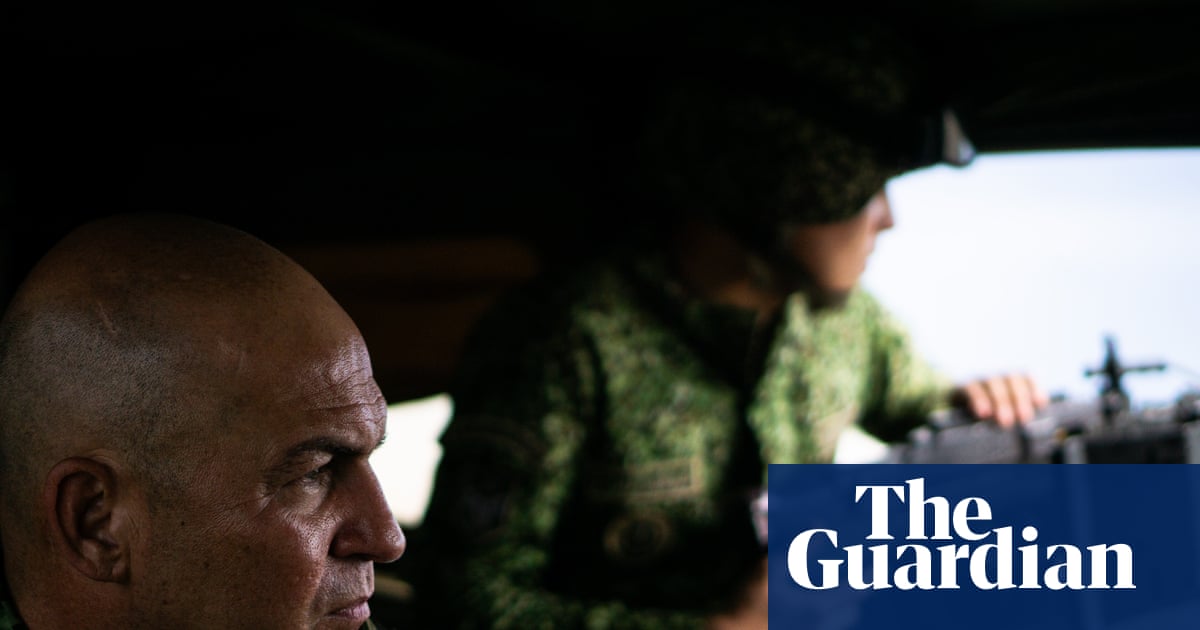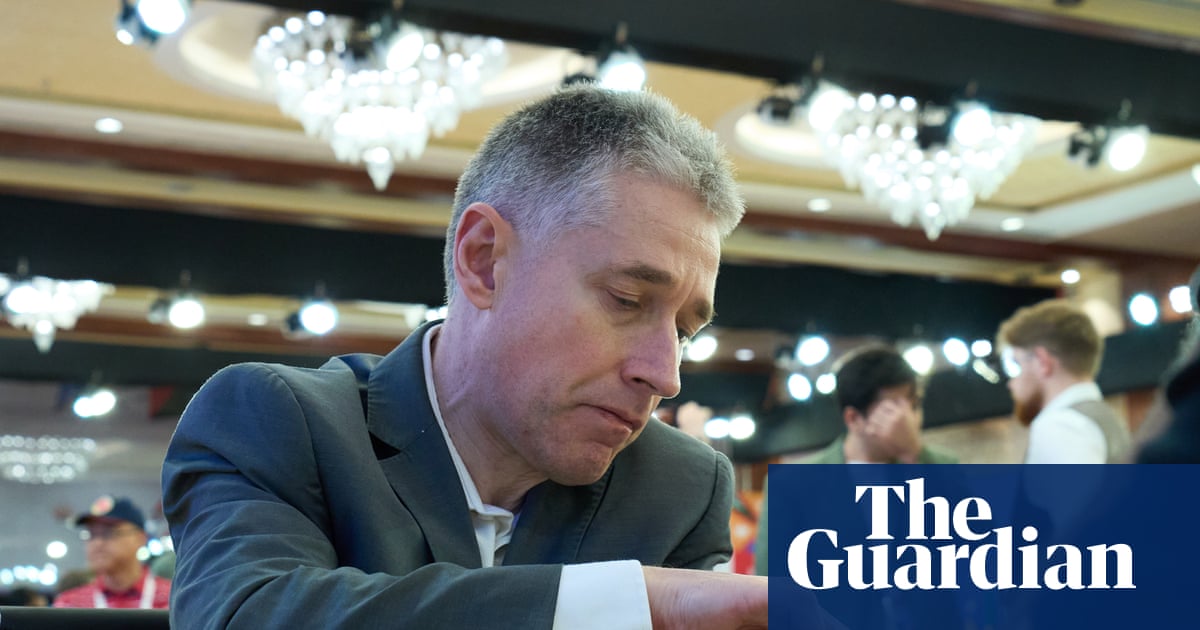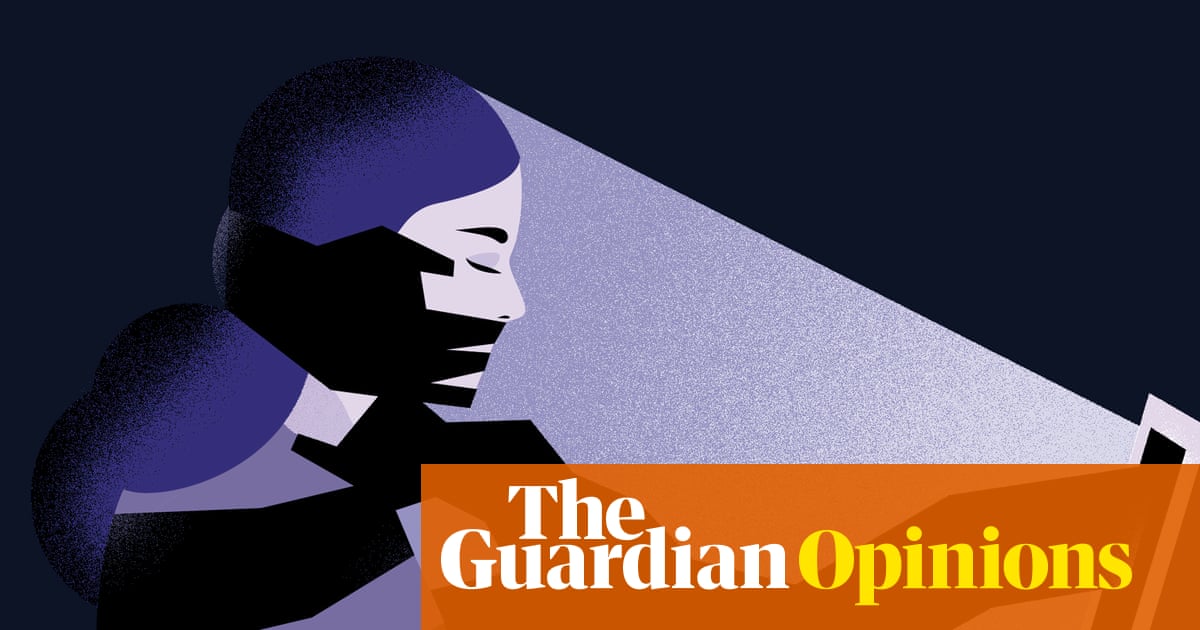It was Thursday morning, and Komsan Prachan’s two children would normally have been in school. Instead, their village in north-eastern Thailand had been put on high alert. Fighting had broken out on the country’s disputed border with Cambodia. Local officials cancelled classes and sent messages over loudspeakers telling residents to prepare to evacuate.
Komsan and his wife, Rungrat, went to fetch eight-year-old Pongsapak and 14-year-old Taksatorn from school. They were heading home to collect the children’s grandparents when they stopped briefly at a petrol station in Sisaket province. Rungrat nipped into the shop with the children to get some snacks, while Komsan waited in the car. It was then that a rocket hit.
Rungrat, Taksatorn and Pongsapak were among eight people killed.

“My wife is like the other half of my life,” said Komsan. The couple had grown up together, had attended the same school, and fell in love when they both went to work in Bangkok. “She is so caring. She would always ask me and everyone if they were OK, had they had enough sleep, had they eaten?”
Across Thailand 20 people have been killed, including 13 civilians and seven soldiers. In Cambodia, 13 people have been killed, including five soldiers and eight civilians. More than 200,000 people have been evacuated from border areas in both countries.
At a temple in the Non Khun district in Sisaket, government officials visited communities who had left their homes, telling them over a microphone to put their safety first. They offered condolences to families whose relatives had been killed, and announced in a small ceremony that they would be given compensation – though recognised no amount of money would make up for what had been lost.
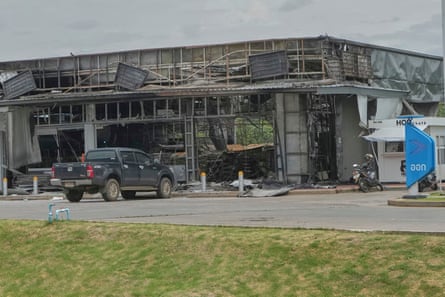
Communities in border areas have lived through clashes in 2008 and 2011. But residents say it was never this bad.
“This time it just keeps on going,” said Prasit Saopa, a 52-year-old farmer, who sat outside the temple. He did not bring any belongings when he fled his home, because the family assumed they would only have to evacuate for a short time, as was the case in the past. He risked going home on Friday to collect emergency supplies, stopping in a bunker along the way for cover. It was like a ghost town, he says – except for the sound of booming artillery.
Prasit’s village has not been hit, but about 20 rubber trees in a nearby field have been damaged, and a home in the adjacent village about 500 metres away.
He said he wanted the Thai military to take a tough stance and “clear out” the Cambodian soldiers from the border area. He did not have a problem with Cambodian people, he added. “Cambodian people – we are just friends, they are normal, good people. The problem is Hun Sen,” he said, referring to the powerful authoritarian former leader who was the prime minister of Cambodia for almost 40 years, and whose son Hun Manet is now in office.
On Saturday, Donald Trump said Thailand and Cambodia had agreed to “immediately meet” to work out a ceasefire, after speaking with both sides. The US would not negotiate a trade deal with either side until the fighting stopped, he said. The following day clashes continued regardless. Both Thailand and Cambodia are facing the prospect of a 36% US tariff from 1 August.
Both sides have blamed each other for opening fire.
The latest tensions are compounded by an acrimonious feud between Hun Sen and the former Thai leader Thaksin Shinawatra, whose daughter Paetongtarn is the prime minister. Last month, Hun Sen leaked a recording of a phone conversation between himself and Paetongtarn. It caused uproar in Thailand, where she was accused of kowtowing to Cambodia, and she was suspended from office by the constitutional court.
It is unclear why Hun Sen decided to leak the phone call, but analysts say the personal feud between the men has created an additional level of volatility. Thaksin has denied that the clashes are driven by their personal issues – a criticism made by many Thais on social media. He said last week the Thai military should teach Hun Sen a lesson, as the two politicians traded insults online.
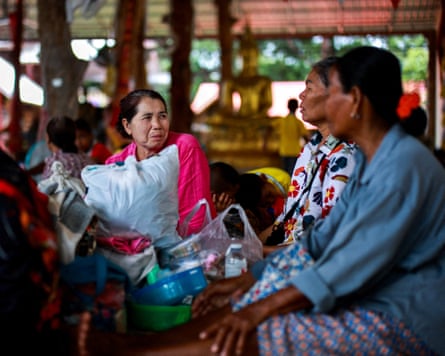
“I want to go back to how it used to be,” said Duan Ounjit, 50. The men in her family stayed behind to watch their houses, and said on Saturday the fighting was continuing.
The rest of the family, 15 in total, were evacuated last week. Beside Duan, covered in blankets, lies her niece’s one-month-old baby, Arm. Duan isn’t optimistic they will return any time soon. The family’s rice fields, which need to be fertilised, are likely to be ruined, she said.

For Komsan, the cost of the fighting is incalculable. He was able to recover his daughter, but doctors were unable to save her. Emergency workers later recovered the body of a woman hugging her young child, believed to be Rungrat and Pongsapak.
Taksatorn was such a good child, he said, always helping at home with the cleaning and cooking, and listening to her parents. “If you asked her for help, she would always say yes,” he said.
Pongsapak was always fun and jolly. “Whenever he went there would be joy and smiles,” said Komsan. “Nothing can ever replace their lives.”

 3 months ago
45
3 months ago
45


